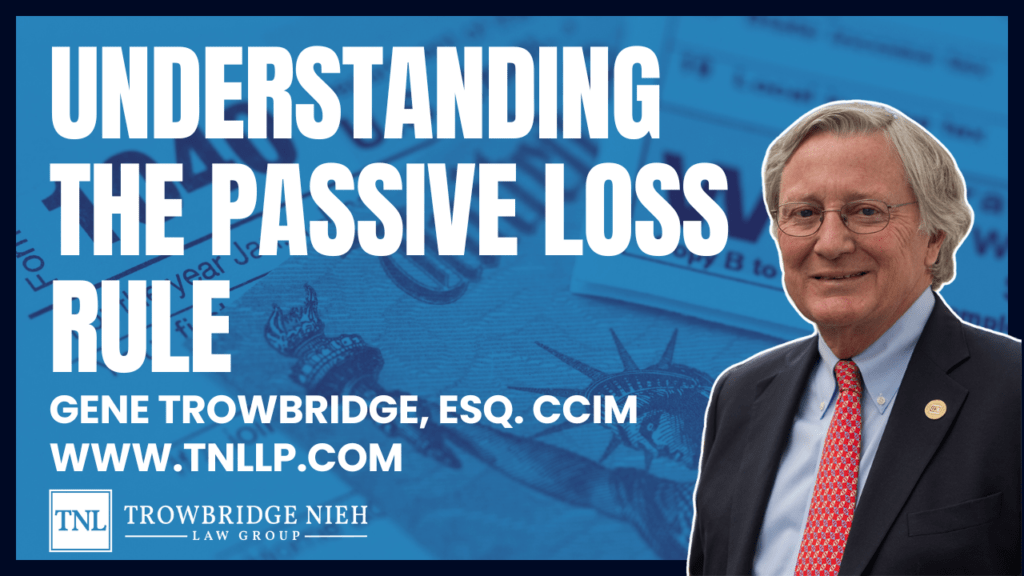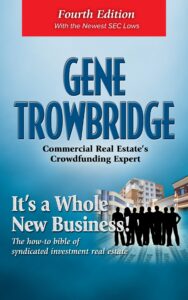Real estate syndication is a popular way for investors to pool their money and participate in large-scale real estate deals that they might not be able to afford or access on their own. However, not all syndications are created equal, and investors should do their due diligence before committing their capital to a sponsor and a project. In this article, we will share some insights from a recent video with Gene Trowbridge, Esq. CCIM, a leading attorney and author in the field of real estate syndication and crowdfunding, who has helped hundreds of sponsors raise over $5 billion from investors. Trowbridge recently gave a talk on his YouTube channel, where he outlined four questions that investors should ask before joining a real estate syndication.
Question 1: What is the continuity of the sponsor?
The first question that investors should ask is about the continuity of the sponsor, which means the stability and longevity of the team that is managing the syndication. Trowbridge explained that investors should look for sponsors who have experience in the type of property, market, and strategy that they are pursuing, and who have a track record of successful exits and returns. He also advised investors to check the references of the sponsor and ask about their communication style, frequency, and transparency.
You need to know who you’re investing with, what their history is, how they’ve performed in the past, and what their plans are for the future … invest with someone who has a vision, a mission, and a purpose, and who can articulate that to you.
-Gene Trowbridge, Esq. CCIM
Question 2: How much skin in the game does the sponsor have?
The second question that investors should ask is about the skin in the game of the sponsor, which means the amount of money that the sponsor is investing in the deal alongside the investors. Trowbridge suggests that investors should look for sponsors who have a significant stake in the outcome of the deal, and who are aligned with the interests of the investors. He also cautioned investors to be wary of sponsors who charge excessive fees or receive disproportionate distributions from the deal.
You want to see that the sponsor is putting some of their own money into the deal, and that they are not just living off the fees that they collect from the investors… Gene Trowbridge, Esq. CCIM
“You also want to see that the sponsor is sharing the profits fairly with the investors, and that they are not taking more than their fair share.”
Question 3: What are the liquidity provisions of the operating agreement?
The third question that investors should ask is about the liquidity provisions of the operating agreement, which means the terms and conditions that govern the exit and distribution of the deal. Trowbridge said that investors should understand the holding period, the exit strategy, the distribution schedule, and the rights and obligations of the investors and the sponsor. He also suggested that investors ask the sponsor to explain the articles in their operating agreement and how they work in different scenarios, such as death, disability, divorce, or distress.
“You need to know what plans the operating agreement foresees as far as creating liquidity,” Trowbridge said.
A well-drafted operating agreement has plenty of ways to provide liquidity for you, but you need to ask the sponsor before you get too far into this to see how the liquidity provisions work and maybe have the sponsor share with you what the articles in their operating agreement are, at least verbally, so that you’re comfortable.
Question 4: What is the experience of the sponsor in crowdfunding?
The fourth question that investors should ask is about the experience of the sponsor in crowdfunding, which means the use of online platforms and social media to raise capital from a large number of investors. Trowbridge said that crowdfunding is a relatively new and evolving phenomenon in the real estate syndication space, and that it requires a different set of skills and compliance than traditional syndication methods. He also advised investors to check the reputation and reviews of the crowdfunding platform that the sponsor is using, and to be aware of the risks and rewards of investing through crowdfunding.
You need to know how the sponsor is using crowdfunding to raise money, and how they are complying with the securities laws and regulations that apply to crowdfunding…[and] know how the crowdfunding platform is vetting the sponsors and the deals, and what kind of due diligence and protection they are offering to the investors.
-Gene Trowbridge, Esq. CCIM
Conclusion
Real estate syndication can be a great way for investors to diversify their portfolio and access lucrative real estate opportunities. However, investors should not blindly trust the sponsor or the deal and should do their homework before investing. By asking the four questions that Trowbridge outlined, investors can gain a better understanding of the sponsor, the deal, the operating agreement, and the crowdfunding platform, and make more informed and confident investment decisions.
If you want to learn more about real estate syndication and crowdfunding, you can watch Trowbridge’s full talk on his YouTube channel, or visit his website, where you can get a free PDF of his book, “It’s a Whole New Business!”, which covers all the topics you need to know to get started in syndication and crowdfunding. You can also get a hard copy of the book for the cost of shipping, or find it on Amazon or Kindle.
Trowbridge and his team also offer free consultations and educational information for sponsors and investors who are interested in real estate syndication and crowdfunding. Ready to get started? Set up a consultation with one of our attorneys today!





